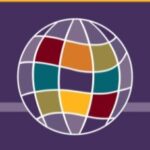These modules are for educators who are interested in becoming postsecondary language program directors (LPD) or in learning more about what LPDs do and the multiple facets of this complex and rewarding job. Although the intended audience is novice and aspiring LPDs, experienced LPDs will also gain from the various perspectives and resources provided, including the extensive LPD bibliography and project-sponsored activities at the International Language Teacher Education Conference hosted by the Center for Advanced Research on Language Acquisition (CARLA).
Available now:
- Module 1: Understanding the Roles and Work of Language Program Directors (Kate Paesani, University of Minnesota)
This module provides an overview of the roles and work of the LPD, including video testimonials from novice and experienced LPDs, tips and strategies for working effectively, and practical activities and resources to support LPDs.
- Module 2: Conceptualizing and Creating the Syllabus (Beatrice Dupuy, University of Arizona, CERCLL Co-Director)
This module provides an overview of syllabus design, definitions of key syllabus types and parts, and tips and strategies to create a course syllabus that respects diversity, is inclusive, and appeals to students.
- Module 3: Language Program Evaluation and Improvement (Cathy Barrette, Wayne State University)
This module provides an overview of some primary areas in which LPDs commonly evaluate their programs, the program evaluation process, and strategies for prioritizing which factors to assess. It concludes with resources to help you build your capacity in each area.
- Module 4: The Language Program Director as Scholar (Chantelle Warner, University of Arizona, CERCLL Co-Director)
This module will invite you to reflect on the role of the LPD as scholar and relatedly on the language program as a site of applied research practice. You will also be encouraged to return to some of the key concepts from previous modules, as you consider how they might relate to scholarly inquiry.
Coming soon:
- Module 5: The Methods Course and Ongoing Teacher Professional Development
➣ You will find more about the modules on the LPD site here: https://carla.umn.edu/lpd/modules/index.html.
 This project is created by the Center for Advanced Research on Language Acquisition at the University of Minnesota, in collaboration with the American Association of University Supervisors and Coordinators (AAUSC), the Center for Educational Resources in Culture, Language, and Literacy (CERCLL) at the University of Arizona, and the Center for Open Educational Resources and Language Learning (COERLL) at the University of Texas at Austin.
This project is created by the Center for Advanced Research on Language Acquisition at the University of Minnesota, in collaboration with the American Association of University Supervisors and Coordinators (AAUSC), the Center for Educational Resources in Culture, Language, and Literacy (CERCLL) at the University of Arizona, and the Center for Open Educational Resources and Language Learning (COERLL) at the University of Texas at Austin.

